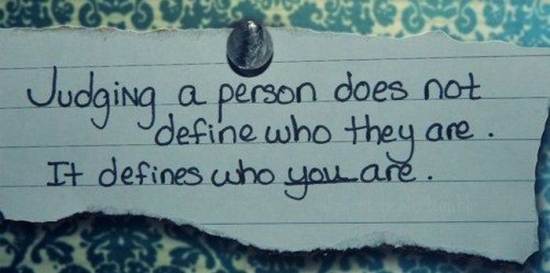
“And behold, I tell you these things that ye may learn wisdom; that ye may learn that when ye are in the service of your fellow beings ye are only in the service of your God” (Mosiah 2:17).
This life is not meant to be spent focusing on ourselves, but rather our focus and attention, and indeed our greatest blessings in this life, come from serving others. If we proclaim to be Christians and say that we are striving to emulate the Savior in our daily walk, then we must also understand that the Christian life brings with it the duty and the privilege of a lifetime of service.
Jesus Christ is Our Great Exemplar
Our Lord and Savior, Jesus Christ, did not come to be served, but rather His mission was to be about His Father’s business by being a servant to others. His entire ministry – from raising the dead, to healing the lame, to opening the eyes of the blind and the ears of the death, to His intercessory prayer in the Garden of Gethsemane, to giving His life as a ransom for many while hanging upon a cruel Roman cross on Golgotha’s lonely hill – was centered on others.
The Gospel of Jesus Christ is a Gospel of action. Therefore, true disciples of Jesus Christ are not passive people. They are a people of action. They are actively engaged in helping to build up the Kingdom of God on earth, and one of the best ways that they can do that is by serving others. As King Benjamin taught in his sermon, “And behold, I tell you these things that ye may learn wisdom; that ye may learn that when ye are in the service of your fellow beings ye are only in the service of your God” (Mosiah 2:17).
The Savior Himself said, “Greater love hath no man than this, that a man lay down his life for his friends” (John 15:13). What exactly did He meant by this? He was not saying that to show our love for our friends that we literally have to die, but the lesson that He was teaching is that we lay down our lives for our friends every time we willingly put the needs of others ahead of our own. He also commanded us to “love one another; as I have loved you” (John 13:34). And so, keeping that thought in mind, the word “friends” can be understood to be everyone we meet.
There are Many Opportunities to Serve
As members of The Church of Jesus Christ of Latter-day Saints we have many opportunities to serve. We can do small and random acts of kindness for our neighbors, take part in community service projects, fulfill and magnify our Church callings, contribute to the Church’s humanitarian efforts, and there are some who serve our country in the military. These are but a few ways that everyone can have an opportunity to serve. As we give service, we not only bless the lives of others, but we are also blessed in many ways. Service allows us to do for others as the Master has done for us. The words of a familiar hymn (Hymn 219, “Because I Have Been Given Much”) reminds us that:
Because I have been given much, I too must give;
Because of thy great bounty, Lord, each day I live
I shall divide my gifts from thee with ev-‘ry brother that I see
Who has the need of help from me.
Are We Not All Beggars?
Perhaps there are those who may say that they don’t have the time, the talents, or the abilities to adequately be of service to others. Or perhaps they ask, “Why should I give of my time and/or abilities to be of service to others?” I would direct their attention to one of my personal favorite chapters in the Book of Mormon (Mosiah 4:19-24), and the words of King Benjamin:
19 For behold, are we not all beggars? Do we not all depend upon the same Being, even God, for all the substance which we have, for both food and raiment, and for gold, and for silver, and for all the riches which we have of every kind?
20 And behold, even at this time, ye have been calling on his name, and begging for a remission of your sins. And has he suffered that ye have begged in vain? Nay; he has poured out his Spirit upon you, and has caused that your hearts should be filled with joy, and has caused that your mouths should be stopped that ye could not find utterance, so exceedingly great was your joy.
21 And now, if God, who has created you, on whom you are dependent for your lives and for all that ye have and are, doth grant unto you whatsoever ye ask that is right, in faith, believing that ye shall receive, O then, how ye ought to impart of the substance that ye have one to another.
22 And if ye judge the man who putteth up his petition to you for your substance that he perish not, and condemn him, how much more just will be your condemnation for withholding your substance, which doth not belong to you but to God, to whom also your life belongeth; and yet ye put up no petition, nor repent of the thing which thou hast done.
23 I say unto you, wo be unto that man, for his substance shall perish with him; and now, I say these things unto those who are rich as pertaining to the things of this world.
24 And again, I say unto the poor, ye who have not and yet have sufficient, that ye remain from day to day; I mean all you who deny the beggar, because ye have not; I would that ye say in your hearts that: I give not because I have not, but if I had I would give.
Every opportunity that we have to serve others should be a reminder to us that Our Heavenly Father often allows us to be the answer to another person’s prayers. As we serve others we should also be reminded of the words of the Savior Himself. Said He, “Inasmuch as ye have done it unto one of the least of these my brethren, ye have done it unto me” (Matthew 25:40).
Serving Others is the Lord’s Way
President Spencer W. Kimball once explained: “God does notice us, and he watches over us. But it is usually through another person that He meets our needs” (“The Abundant Life,” Tambuli, June 1979, 3). President Thomas S. Monson has taught us, “Along your pathway of life you will observe that you are not the only traveler. There are others who need your help. There are feet to steady, hands to grasp, minds to encourage, hearts to inspire, and souls to save.” (Thomas S. Monson, How Firm a Foundation, Ensign, November 2006). President Monson also taught us in his October 2009 General Conference address titled “What Have I Done for Someone Today?” that serving others is the Lord’s way. He remarked, “Unless we lose ourselves in service to others, there is little purpose to our own lives. Those who live only for themselves eventually shrivel up and, figuratively, lose their life, while those who lose themselves in service to others grow and flourish — and in effect save their life.” And the Prophet Joseph Smith is quoted as having said, “If my life is of no value to my friends it is of none to myself.”
Now, someone may ask, “What about the person that seems to have everything that they need? Can we still offer service to that person? Do we need to offer service to that person since they don’t seem to need any help?” I offer this wise counsel as something for us all to think about – sometimes those who seem not to need any help, are some of the people whose needs are the greatest. We should never assume anything.
The Gospel of Jesus Christ teaches us that everyone benefits from serving and being served by others. Service is not only about filling a need, but it is also about showing charity – the pure love of Christ – to our brothers and sisters. Christ taught, “By this shall all men know that ye are my disciples, if ye have love one to another” (John 13:35). And so, the way that we show our love to our Heavenly Father is by serving one another.
Brothers and sisters, the service that we give doesn’t have to be something that is grandiose, but even the little things that we do for another can make a huge difference in his or her life. The beauty of following Christ’s example is that we don’t need to test who, when or how we serve, we just act. Service can be planned or it can be spur of the moment. Service can be for someone we know or for a total stranger. It really doesn’t matter. And may I add one other warning? It is not the quantity of service that necessarily makes the difference, but rather, the quality of service. The question that we should ask ourselves is, “Do I give service to another merely out of obligation, or do I give service to another because of my genuine love for them as my brother or sister?”
I close with these last thoughts. True service is rendered without expecting any personal recognition or reward. The true motivation behind any service that we give should be the love that we have for our brothers and sisters, and the love that we show to our Father in Heaven.
I leave these thoughts with you humbly in the name of our Lord and Savior, Jesus Christ. Amen.

Serving one another leads to a path of peace in our lives. When we serve others, not only are their lives blessed, but our lives are blessed as well.


































